Dump trailers are indispensable for a variety of industries, including construction, landscaping, and agriculture. However, prolonged exposure to moisture, chemicals, and elements can lead to rust, severely compromising their longevity and performance. In this guide, we will explore effective techniques to keep your dump trailer from rusting, ensuring optimal functionality and durability.
Understanding Rust: The Enemy of Your Dump Trailer
Rust is the oxidation of iron that occurs when metal is exposed to moisture and oxygen, typically manifesting as a reddish-brown flaky coating. In dump trailers, rust can weaken the structural integrity and lead to costly repairs. To effectively combat rust, it’s essential to understand its causes and the most effective prevention strategies.
The Causes of Rust Formation
Rust formation can be attributed to several factors:
Moisture: Water is the primary catalyst for rust. Dump trailers that frequently come into contact with rain, snow, or damp ground are at a higher risk.
Chemical Exposure: Exposure to harsh chemicals, such as road salt or fertilizer, can accelerate rust formation.
Neglect: A lack of regular maintenance can exacerbate rust issues, allowing small problems to escalate over time.
Environmental Factors: Prolonged exposure to high humidity or salty air (common in coastal areas) can also contribute to rust development.
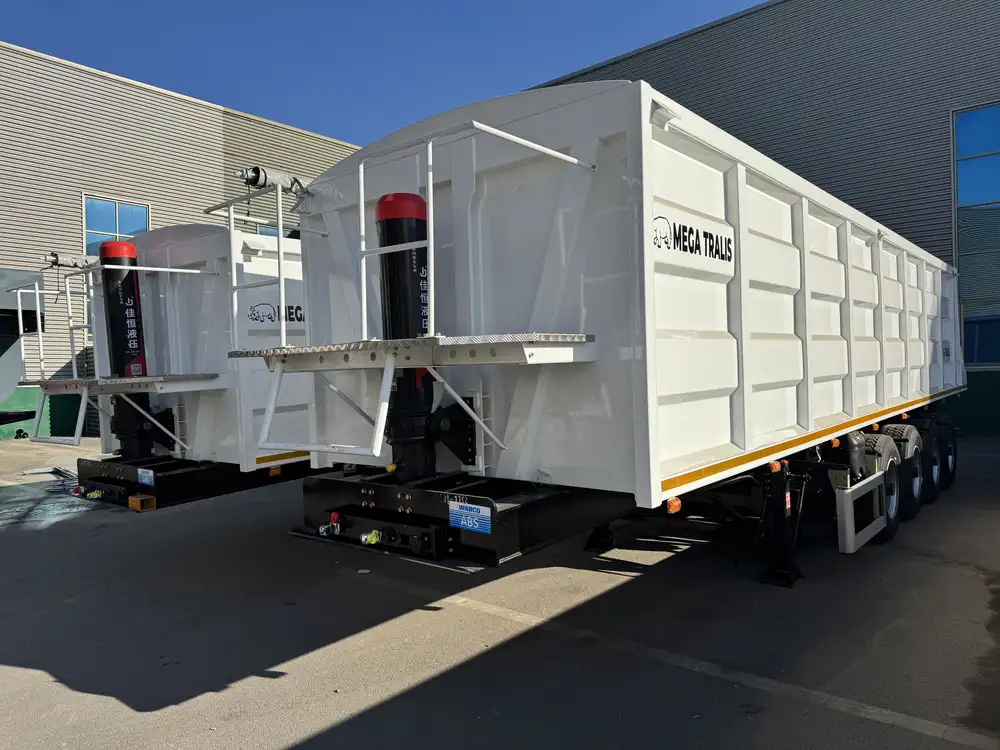
Protective Measures to Prevent Rust
1. Regular Cleaning
To prevent the formation of rust, regular cleaning is paramount. Follow these steps:
- Frequency: Clean your dump trailer after every use to remove dirt, debris, and moisture.
- Tools: Use a pressure washer or a garden hose with a scrubber attachment.
- Cleaning Agents: Opt for non-corrosive detergents specifically designed for cleaning metal surfaces.
2. Protective Coating
Applying a protective coating can create a barrier against moisture and other elements prone to cause rust.
- Rust Inhibitors: Utilize rust-inhibiting paints or sealers. Products like epoxy or urethane-based paints offer robust protection.
- Application: Ensure the surface is clean and dry before applying the coating. Follow manufacturer instructions for optimal results.
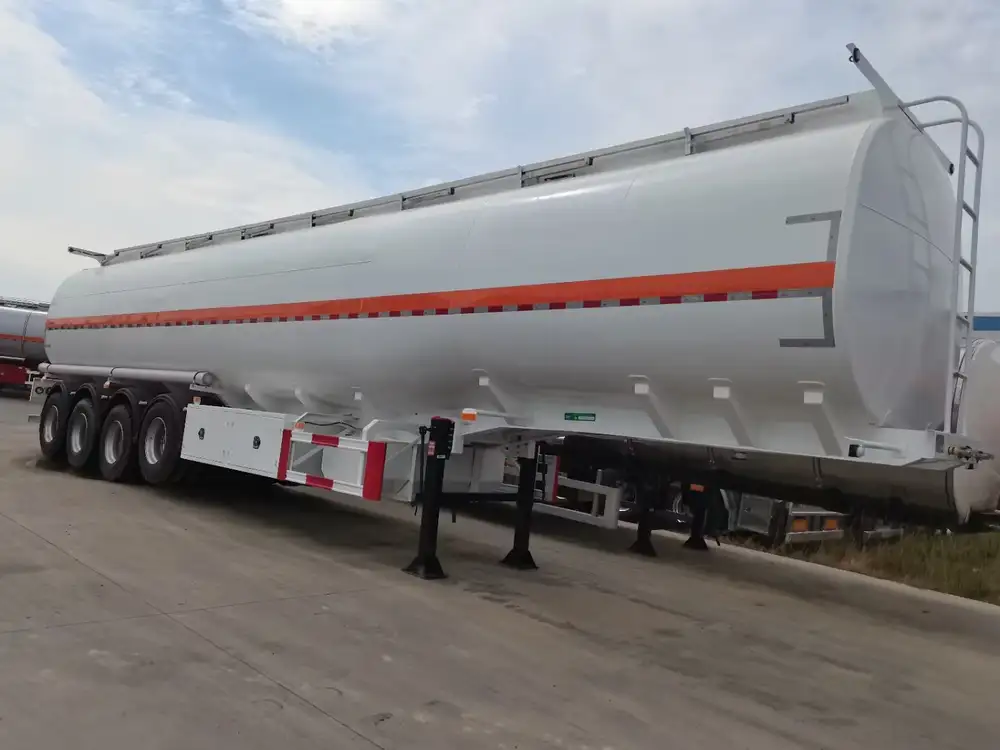
3. Regular Inspections
Routine inspections are essential for early detection of rust.
- Check Undercarriage: Inspect the undercarriage and hard-to-reach areas where moisture accumulates.
- Monitor for Early Signs: Look for discoloration, flaking paint, or rust spots. Early intervention can prevent more extensive damage.
4. Storage Solutions
How and where you store your dump trailer can significantly impact its susceptibility to rust.
- Indoor Storage: Keep your dump trailer in a climate-controlled environment when not in use. This minimizes exposure to moisture and temperature fluctuations.
- Outdoor Covers: If indoor storage is not an option, invest in a quality tarp or cover designed to repel water and resist UV rays.
Understanding the Right Materials
Choosing the right materials for your dump trailer can greatly influence its resistance to rust.
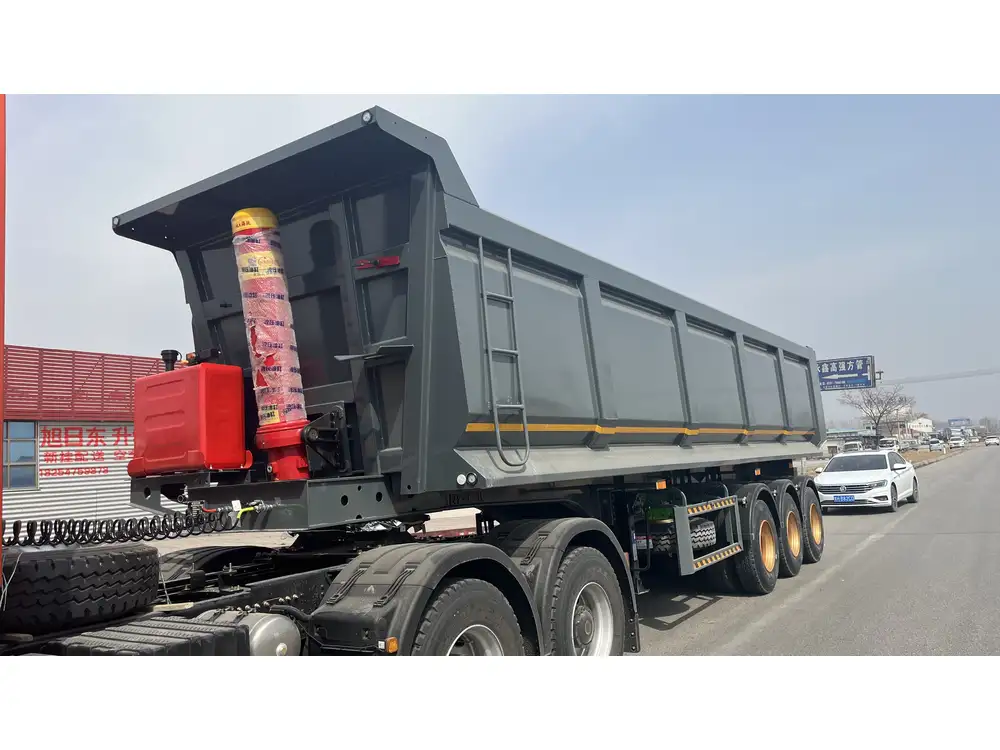
1. Galvanized Steel
Consider using galvanized steel, which is coated with zinc. This protective layer shields the steel from moisture and reduces the likelihood of rust formation.
2. Stainless Steel
Although more expensive, stainless steel offers superior corrosion resistance, making it an ideal choice for dump trailers exposed to harsh environments.
3. Aluminum Trailers
Aluminum dump trailers are naturally resistant to rust. They are lightweight and easier to maneuver, offering an excellent alternative if you consistently face rust issues.

Painting Techniques for Enhanced Protection
Proper painting techniques can add a layer of protection to your dump trailer.
1. Surface Preparation
Before applying paint, meticulously prepare the surface:
- Sanding: Sand any rusted areas down to bare metal.
- Cleaning: Remove all dust, debris, and grease using a solvent or degreaser.
2. Primer Application
Applying a metal primer before painting increases adherence and prevents rust:
- Corrosion-Inhibiting Primers: Use a high-quality corrosion-inhibiting primer for the best results.
- Allow to Dry: Ensure the primer dries completely before proceeding to paint.
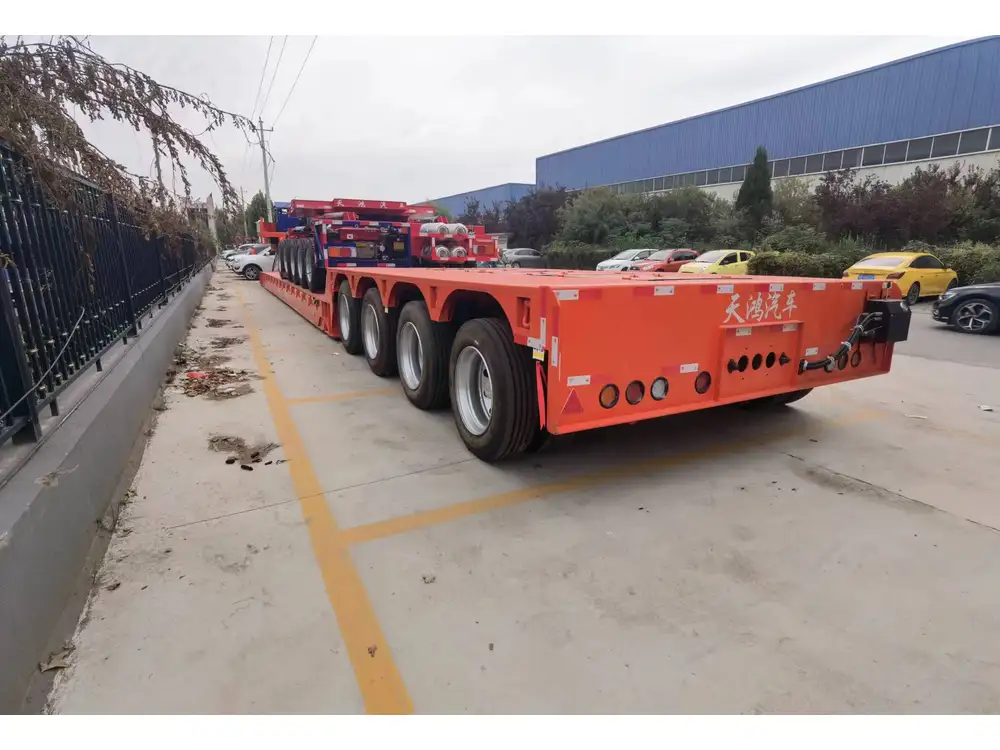
3. Optimal Painting Conditions
- Temperature and Humidity: Paint in moderate temperatures, ideally between 50°F and 85°F, with low humidity levels.
- Multiple Coats: Applying multiple coats can enhance durability. Follow the manufacturer’s instructions on drying times.
Addressing Common Issues
1. Dealing with Existing Rust
If rust is already present, it must be addressed swiftly to prevent further damage.
- Rust Removal Products: Use chemical rust removers or products containing phosphoric acid to treat affected areas.
- Sanding or Grinding: For extensive rust, sanding or grinding may be necessary to remove it entirely.
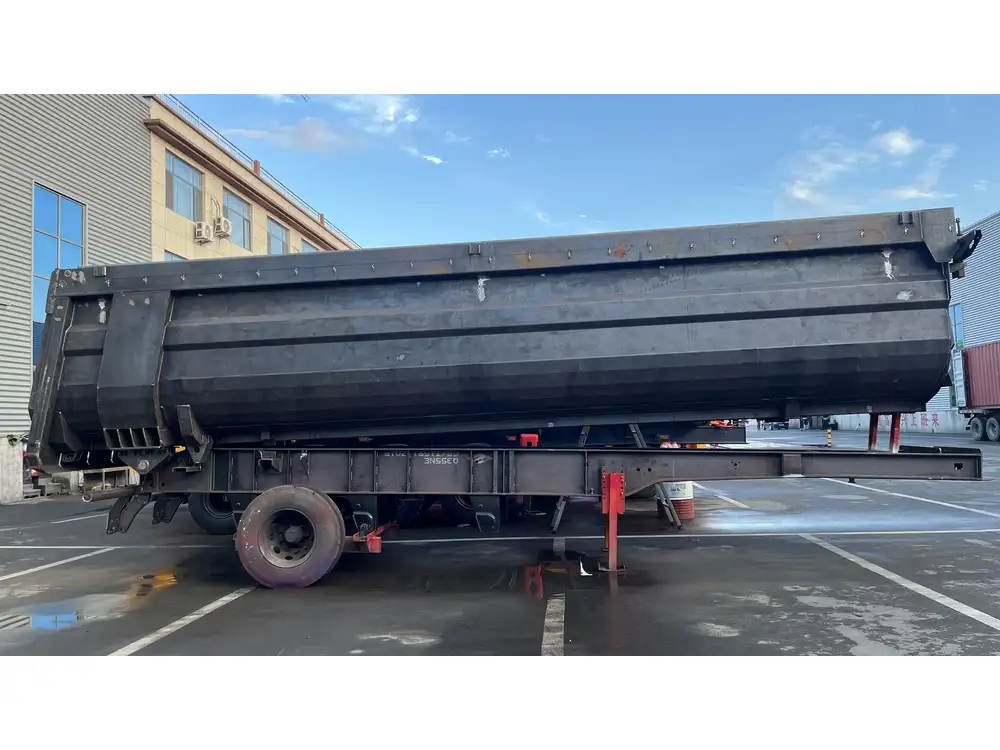
2. Immediate Repairs
If structural components have been compromised, immediate repairs are critical:
- Consult a Professional: If you’re unsure about repairs, contacting a specialist can save time and ensure safety.
- Replacement Parts: Invest in quality replacement parts to prolong the life of your trailer.
Seasonal Maintenance Hacks
Seasonal changes can impact the condition of your dump trailer. Here’s how to adapt your maintenance approach:
Spring Maintenance
- Inspection for Salt and Debris: After winter, thoroughly inspect for salt buildup or dirt.
- Deep Cleaning: Conduct a deep clean and apply a fresh coat of protective paint if necessary.
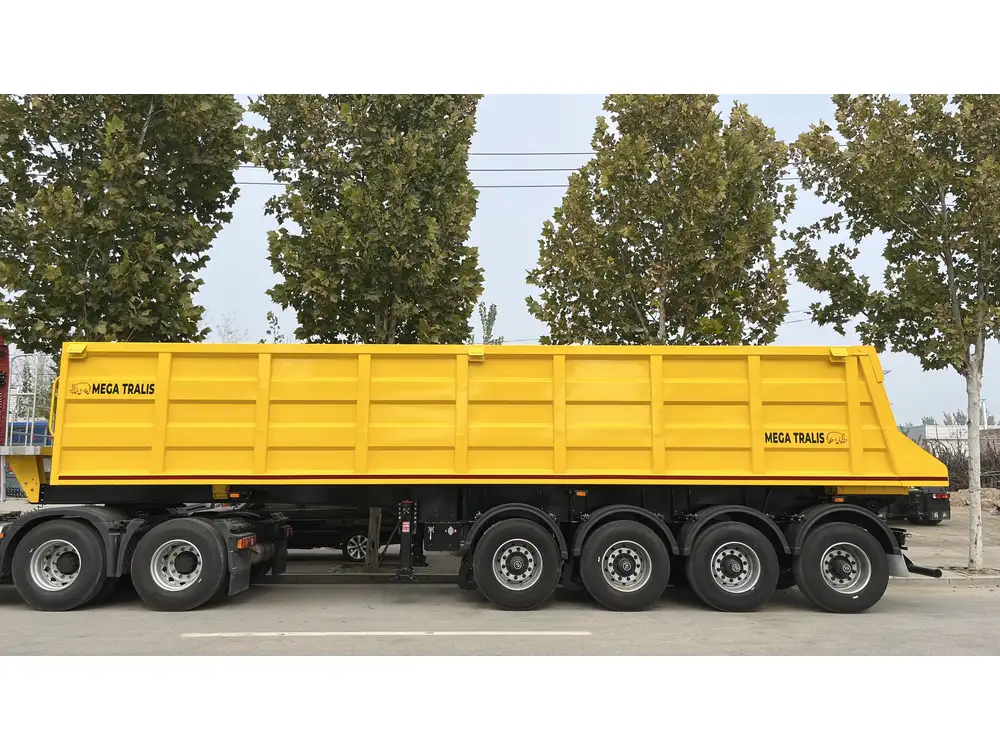
Summer Maintenance
- Check for UV Damage: Inspect for any fading or degradation caused by sun exposure.
- Apply UV Protectant: Use a protectant spray designed to shield against UV rays.
Fall Maintenance
- Prepare for Winter: As temperatures drop, consider adding a winterizing agent to fluid systems.
- Final Inspection: Conduct a final inspection before storing your trailer for winter.
Winter Maintenance
- Storage Prep: Ensure your trailer is stored in a dry place, preferably indoors.
- Covering: Use a breathable cover to prevent moisture accumulation while protecting against snow and ice.

Creating a Maintenance Schedule
Finally, establishing a structured maintenance schedule can help you stay on top of rust prevention measures. Here’s a monthly breakdown:
| Month | Maintenance Tasks | Notes |
|---|---|---|
| January | Inspect and clean | Store trailer indoors if possible. |
| February | Inspect brakes and tires | Check for rust underneath. |
| March | Deep clean and apply protective coating | Prepare for spring use. |
| April | Inspect for wear and tear | Clean out debris, especially in undercarriage. |
| May | Perform all-around inspection | Ensure paints are intact. |
| June | Check for UV damage | Apply protectants. |
| July | Monitor if in use | Clean post-use. |
| August | Inspect tires and brakes | Check for rust at attachment points. |
| September | Rust treatment if present | Adjust storage methods for fall. |
| October | Apply winterizing agents | Prepare for winter storage. |
| November | Final wash and cover | Ensure dryness before storage. |
| December | Inspect tapes and seals | Monitor during cold months. |
Conclusion
Protecting your dump trailer from rust is critical to its longevity and performance. By implementing a regular cleaning program, applying protective coatings, and being vigilant during seasonal changes, you can significantly reduce the risk of rust developing. Additionally, immediate attention to repairs and routine inspections will ensure that any rust issues are caught early, minimizing damage and maximizing the lifespan of your essential equipment. Investing time and effort into these practices will not only save you money in the long run but also enhance the efficiency and functionality of your dump trailer for years to come.



